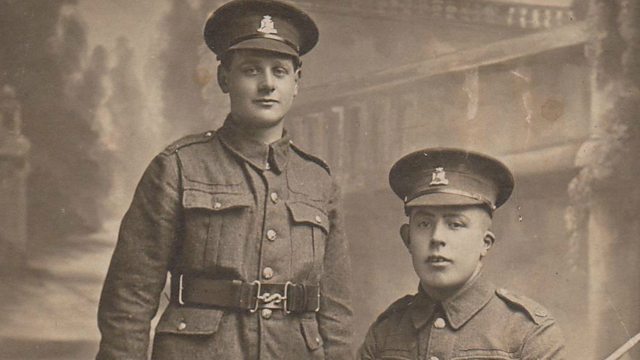Yeovil, Somerset: For the Love of Gloves
The men who exempted encryption to make gloves for the front
Victorian Yeovil may have been known as the world capital of glove-making, but before World War One nobody would have seriously thought that gloves would seal a man’s fate.
However, a single session of the local military tribunal in 1917 determined the future for almost a hundred men; and for two in particular. What’s more it was all down to a huge government order for clothing.
On 13 September 1917 the local military service tribunal, sitting in Yeovil Town Hall, was due to consider the cases of ninety-nine men who were appealing against conscription.
There were seven grounds on which men could be exempted from serving in the armed forces; it being in the national interest to remain in non-military work, to be about to start certain non-military work, essential training or education, serious hardship, ill health, conscientious objection or employment in a reserved occupation.
All the men being considered that day worked in the glove industry. The military representative in the Town Hall, Mr FW Mayo, was concerned about a series of large War Office contracts for gloves. It was vital that the orders were met and completed by the end of the year so that they could be transported to the fighting forces on the Western Front. That meant big business for local firms in the glove-making industry but it also required experienced men to stay behind to complete the work.
So, in a highly unusual move, the tribunal decided to allow ninety six of the ninety-nine applicants to stay in the factories until at least 1 February 1918. The cases of just three men were thrown out.
Mr Roberts was a 39-year-old manufacturer who was recommended for conditional exemption; presumably a short stay of execution while he put his business affairs in order. The other two were a pair of 18-year-old lads. Reg Sweet had just finished his apprenticeship as a glove cutter and Bert Jennings had recently qualified as a leather dresser. They were new to the industry with little in the way of experience. But crucially for the military authorities they were young, fit men who would have been more useful as replacements at the front than working in the factories of Yeovil.
With the Third Battle of Ypres (Passchendaele) raging over the Channel in Belgium, the demand for service supplies and clothing would have been uppermost in the minds of the tribunal’s military advisors.
So within weeks Reg and Bert found themselves at the Taunton Military Depot where they were sent to the Wiltshire Regiment and subsequently served together in ‘A’ Company, 2nd Battalion The Wilts. But tragically only one of them returned safely to the soft, undulating landscape of south Somerset they both called home.
Reg was a company runner, he was awarded the Military Medal for carrying messages under fire and he survived the shrapnel wounds he received just weeks before the end of the war. However, Bert was less fortunate. He was killed in action on 31 May 1918 and is buried in the Chambrecy British Cemetery near Reims.
Today, nothing remains of the place where Reg and Bert’s fate was decided. A fire ripped through the Town Hall in 1935, destroying the landmark building beyond repair and now a row of drab, rather pedestrian-looking shops sits in its place. The only remnant of the Great War era on the site is a small section of wall made of red brick and Yeovil stone, part of the Corn Exchange which sat behind the Town Hall.
Location: Site of the former Town Hall, Borough Arcade, High Street, Yeovil BA20 1RX
Image: Reg Sweet and Bert Jennings in March 1918, courtesy of the Jack Sweet Collection
Duration:
This clip is from
Featured in...
![]()
�鶹�� Somerset—World War One At Home
Places in Somerset that tell a story of World War One
More clips from World War One At Home
-
![]()
The loss of HMY Iolaire
Duration: 18:52
-
![]()
Scotland, Slamannan and the Argylls
Duration: 07:55
-
![]()
Scotland Museum of Edinburgh mourning dress
Duration: 06:17
-
![]()
Scotland Montrose 'GI Brides'
Duration: 06:41







